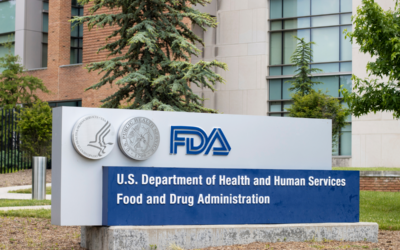Ann Arbor, MI – February 21, 2025 – SoundRocket, a leader in user comprehension research for regulated medical and diagnostic devices, is proud to announce its role in securing FDA clearance for the GlutenID Celiac Genetic Health Risk (GHR) Test (K241456), developed...
From Academia to the FDA: How SoundRocket Launched into Regulatory Research
Our Rocket’s Unexpected Trajectory When we founded SoundRocket (then known as Survey Sciences Group, LLC) in 2004, we had no idea we’d one day be playing a critical role in regulatory health communications research. Our roots were firmly planted in academic social...
Best Practices for Questionnaire Design
Introduction Questionnaire design is a cornerstone of survey research. It guides the development of questions, structures the survey, and ensures it achieves the intended research objectives. Strong design enhances the validity and reliability of the data collected in...
The Role of a CRO in Medical Device Regulatory Compliance
Navigating FDA regulatory compliance for medical devices is a multifaceted challenge that demands precision, expertise, and seamless collaboration. For medical device regulatory consultants and compliance-focused professionals, partnering with a specialized Contract...
Introducing a Specialized CRO for FDA 510(k) Study Needs
Introducing a Specialized CRO for FDA 510(k) Study Needs Bringing a medical device to market requires navigating complex FDA regulatory pathways for medical devices. These pathways—such as premarket notification (510(k)), premarket approval (PMA), and De Novo...
FAQs about the FDA’s Final Rule on ACNU for Nonprescription Drugs
What is ACNU? ACNU stands for "Additional Condition for Nonprescription Use," a regulatory framework introduced by the U.S. Food and Drug Administration (FDA) to make certain medications available over-the-counter (OTC) while ensuring they are safe and effective for...
Navigating the FDA’s Final Rule on ACNU for Nonprescription Drugs
Key Areas of Focus for Manufacturers Under the New Guidelines FDA self-selection studies are critical to the regulatory evaluation process, particularly for over-the-counter (OTC) drugs and direct-to-consumer (DTC) The FDA has recently finalized a rule about...
What to Know About FDA’s Self-Selection Studies Guidance
FDA self-selection studies are critical to the regulatory evaluation process, particularly for over-the-counter (OTC) drugs and direct-to-consumer (DTC) medical devices. These studies evaluate whether typical users can accurately choose if a health product is right...
Understanding LDTs with Real-World Examples
Laboratory Developed Tests (LDTs) have become an essential part of healthcare diagnostics. These specialized tests, developed and processed within CLIA-certified laboratories, offer customized solutions that help close diagnostic gaps left by commercial options. They are particularly important in areas where traditional diagnostics fall short, such as personalized healthcare.









